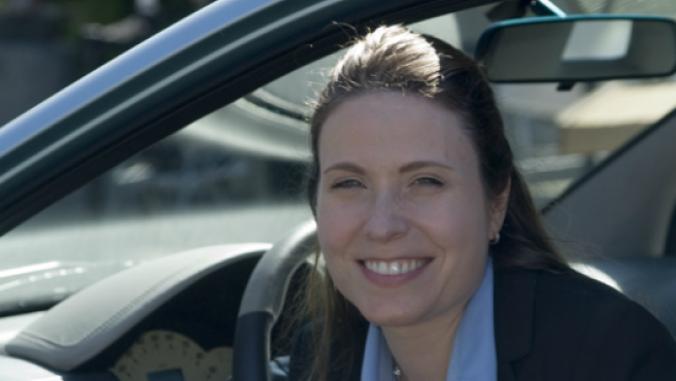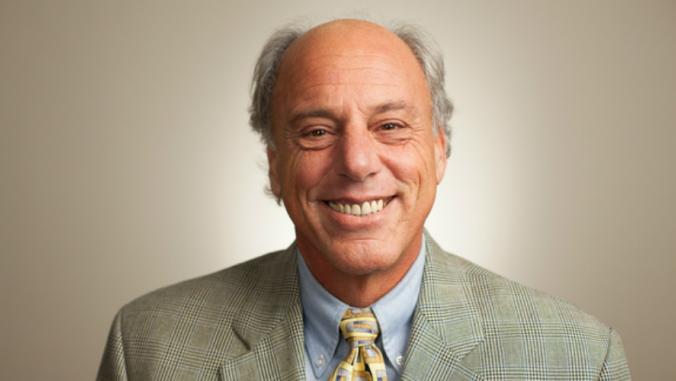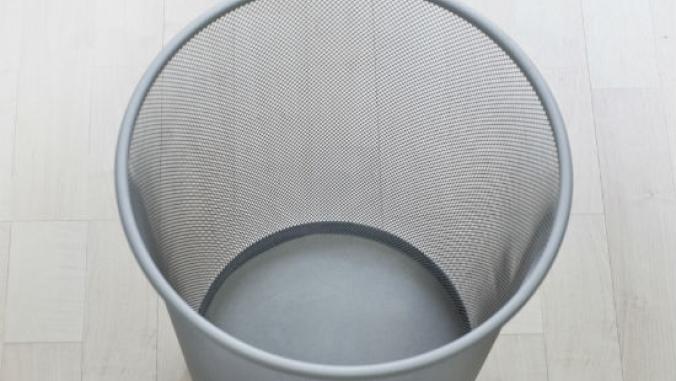How the 49ers are upping the game by going green
<p>Execs from the Super Bowl committee and San Francisco's team discuss the first LEED Gold football stadium and getting sustainability into the end zone.</p>

Top image of football by David Lee via Shutterstock.
Professional sports leagues are not known to be green champions. But that is starting to change. Just recently, the National Hockey League presented its first sustainability report, sizing up its carbon footprint and showing ways to improve it.
When Super Bowl 50 descends onto the Bay Area in 2016, there will be a lot of talk about sustainability, too. In fact, host franchise San Francisco 49ers already praises its brand-new Levi's Stadium in Santa Clara as the most technologically advanced venue of its kind and the new standard for green sports arenas in the country.
"When people see our technology in action, they are going to start to ask questions: Why isn't our stadium like this?" said 49ers CEO Jed York at the recent Green Sports Alliance Summit in Santa Clara. "When your fans start asking that, you better deliver what consumers want."
According to him, what the fans want is a greener, more ecologically conscious experience — solar panels on the roof and vegan hot dogs at the concession stands included. Perhaps MetLife Stadium's composting, recycling and renewable energy at the most recent Super Bowl have gotten fans interested.
49ers dig LEED Gold
Besides a 400kW photovoltaic installation and locally sourced food choices, the 49ers' $1.2 billion state-of-the-art facility uses 50 percent less water to keep up the grass and recycles 85 percent of its overall water consumed. Wherever possible, recycled or reclaimed building materials were used and the stadium features a 27,000-square-foot green roof. All of these measures led to a LEED Gold certification, the first for a U.S. sports venue of this magnitude, with seating for nearly 69,000 fans.
"People don't understand that there are a lot of economically feasible ways to build green," York said. "There might not be cost savings at day one, but over the first five years of the building we will save tens of millions of dollars — if not more — from the payback of what we have done in being green and being sustainable. You just have to have that vision. You have to understand that it will pay itself back."
 Other returns of investment might not be that obvious. For example, the Super Bowl 50 host committee jumped at the chance to engage a new kind of sponsor by creating a sustainability category. "Many companies have great sustainability programs nobody has ever heard about," committee CEO and president Keith Bruce said. "We want to drag them out in the open." It is working well, according to Bruce, especially as the lion's share of Super Bowl 50 corporate partners so far are headquartered in the Bay Area.
Other returns of investment might not be that obvious. For example, the Super Bowl 50 host committee jumped at the chance to engage a new kind of sponsor by creating a sustainability category. "Many companies have great sustainability programs nobody has ever heard about," committee CEO and president Keith Bruce said. "We want to drag them out in the open." It is working well, according to Bruce, especially as the lion's share of Super Bowl 50 corporate partners so far are headquartered in the Bay Area.
Getting sustainability into the end zone
What we are seeing is the result of a long process initiated some years ago, said Jack Groh, director of NFL's environmental program: "Specifically, the Olympics had done a fantastic job activating their sponsors around sustainability issues. So we felt we were way behind the curve on that." But while the league was gaining expertise in the sustainability field, it did not mean that its own sustainability champions were allowed a seat at the table when new sponsorships were negotiated.
"The idea that the sustainability idiot was talking to a sponsor was not on anybody's radar for a long time," Bruce said. "They didn't want to take any chances: What is this guy going to say, what is he going to do? Is he going to upset our delicate sponsor relationships?" The only way he finally could secure himself and his colleagues a place at the table was by promising not to ask for money.
So he would talk strictly sustainability issues after looking very closely at the company's sustainability reports. Which then lead to an offer, as Bruce described: "Can you teach us some of the things that you were doing and then we'll find a way to activate that agenda around Super Bowl?" Very gradually, the door for the topic of sustainability started to open.
Bruce is convinced that the paradigm shift will go even further: "Right now things are shifting from an operational disadvantage to a competitive advantage. We believe [sustainability] is a competitive advantage."
York agreed: "If you are not sustainably focused, you are not going to resonate with consumers." And he is convinced that the franchise's example will fuel competition in the league and throughout sports in general. "We hope that we are somebody that is copied. We hope people try to one-up it and get the LEED Platinum."
Top image of football by David Lee via Shutterstock.





